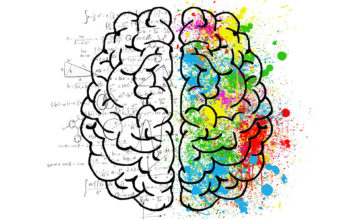At all levels, recruitment is a time-consuming and costly process. And let’s not forget, the pain of finding the right candidate. For this reason, today companies have made staff retention a high priority. Workplaces today are evolving at a fast pace. With millennials taking over the workforce, changing technology trends and cut-throat competition, the need to focus on management skills is now higher than ever.
To be a good manager/leader, it is essential first to understand how each member on your team functions. Some people are task-driven and have a strategic approach to work. And, then there are those that are innovative and thrive on flexibility. There are also those that need constant motivation to strive forward. The essence of a good manager is not to have a bias towards any one of these kinds, but to be adaptable and equipped to manage diversity.
But, understanding the psychologies of employees may take several months or even years and today’s work environment doesn’t allow us the luxury of time. For this reason, several companies have started using psychometric tools to understand how their employees function at a psychological level.
What do Psychometric Tools Do?
Essentially, psychometric tests measure two key areas:
1. Ability
2. Personality
Depending on the industry you are part of and the nature of your organization, you might emphasize one area of psychometric testing over another. Through these tests, you will get an idea of the abilities of your employees, their strengths and weaknesses, how they work in given situations, and their capabilities of working with other team members. Psychometric tests give you an overall snapshot of an employee’s ability and intelligence through logical and abstract testing while also give you an idea of how your employee deals with certain situations.
Choosing the Right Psychometric Tool
Although several tools in the market claim to provide valuable insights, most of them provide information based on a general analysis. They provide surface-level generalized information that seldom helps in improving management efficiency.
To solve this challenge, the accredited Directive Communication created DC Psychology programs. These are research-based and use systematic applications of the specialized science of group dynamics to provide coaching. The DC Psychology programs are designed to create awareness, reinforce this awareness in real-world experiences, and replicate the positive outcome of that with specific workplace implementation objectives. Since DC is the core foundation of group dynamics, it applies to all human-related disciplines.
Here are a few DC Models that will help you in your leadership journey:
1. Coloured Brain: This will help you identify and measure the brain’s genetic clarity, thereby helping you fill communication gaps, reduce conflicts and improve synergy.
2. Emotional Drive: This will guide you in understanding the WHY behind the actions of others. By understanding their primary motivators, you can create environments that support motivated and engaged individuals.
3. The Identity Model: Most training initiatives fail because they require people to change behaviors. The fact is that most people have these behavioral patterns rooted deeply and subconsciously they prefer clinging on to them. This model will help you create an environment that supports personal ideals instead of forcing change.
More than anything else, DC is a personalized leadership development process that includes mentoring, coaching and training within the scope of your own organization and culture. It is ROI-driven and shows visible and sustainable results in 80 days, and the organization can see a noticeable impact in as less as two weeks. The DC Psychology Program will help you evolve as a new-age leader and manage millennials as well as other team members and lead them towards organizational success.



